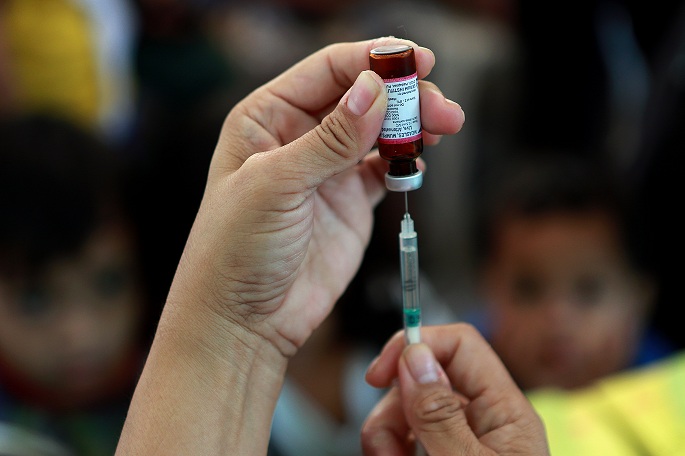German state of opts for mandatory measles vaccination
Published : 12 Apr 2019, 21:15
The German state parliament in Brandenburg approved on Thursday evening with a large majority a motion tabled by the SPD, the Left and the CDU that will require children to be vaccinated against measles if they are attending kindergarten.
Although vaccination will not become immediately compulsory, Brandenburg's parliament is now tasked with drafting the necessary regulations to implement the resolution.
Following a nationwide debate in Germany about mandatory vaccination, the state of Brandenburg has become the first to introduce it ahead of Germany's federal government.
The country's Minister of Health, Jens Spahn, supports the drive to make nationwide vaccination compulsory.
In the future, parents in Brandenburg will have to have their children vaccinated against measles in order for them to be admitted to daycare centers and other daycare facilities. The regional vaccination obligation will apply until mandatory regulations are in place nationwide.
"Measles continues to be one of the most dangerous childhood diseases," according to the motion adopted by Brandenburg's parliament.
The state's legislators stressed that "despite numerous appeals and campaigns to raise awareness about the dangers of measles", outbreaks of the illness continue, even though "vaccination is a very effective preventive measure".
The Robert Koch Institute's Standing Committee on Vaccination recommends that children be vaccinated against measles twice during the first two years after birth.
According to the motion in Brandenburg's parliament, however, almost 25 percent of children in the federal state failed to receive their vaccinations.
As a next step, Brandenburg wants to examine whether mandatory vaccinations should also be used to prevent other infectious diseases.
According to the Robert Koch Institute, 263 people in Germany have already fallen ill with measles this year. The World Health Organization (WHO) believes that, by now, measles could already have been eradicated in Europe.
Failure to vaccinate children led the WHO placing "vaccine hesitancy" -- reluctance or refusal to vaccinate despite the availability of vaccines -- on the list of top 10 global health risks.
The WHO states that vaccination is one of the most cost-effective ways of avoiding diseases and is currently preventing 2 to 3 million deaths a year. However, an additional 1.5 million deaths could be avoided if global vaccination coverage improved.

